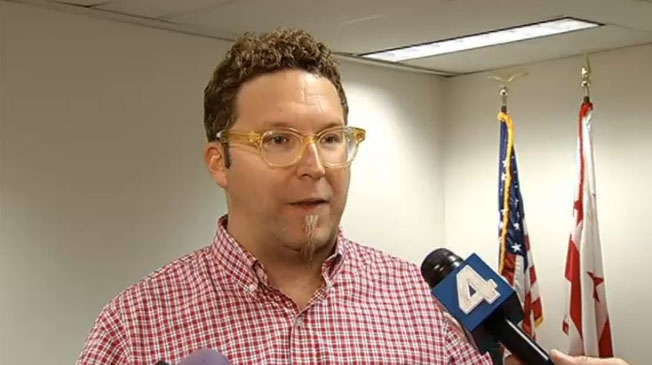DCMJ Urges President Trump to Stop Sessions from Reversing Course of Legalization
WASHINGTON, DC — Legalization advocates DCMJ, the organization that spearheaded Initiative 71 that legalized cannabis in the District of Columbia, issued the following statement Wednesday regarding the Senate confirming Sen. Jeff Sessions (R-Ala.) as U.S. Attorney General.
Adam Eidinger, co-founder DCMJ stated:
“Despite all the damning evidence brought against him, the Senate today rubber-stamped colleague Jeff Sessions to serve as Attorney General in the Trump Administration. Sessions is a failed war on drugs zealot who has gone so far as to suggest that marijuana offenders deserve the death penalty. To say he is out of touch with the legalization wave rolling through the United States would be an understatement. Sessions is a threat to states rights, the will of the voters and the legalization movement as a whole.
“Conversely, President Trump is on-the-record with his support for states rights and medical marijuana, promising a hands-off federal approach to states with legalization laws enacted. We are hopeful that the commander-in-chief, along with leaders from law enforcement, the civil rights community and cannabis activists, will take the opportunity to help enlighten Sessions on responsible drug policy reforms.”
Nikolas Schiller, DCMJ co-founder, added:
“Senator Sessions statements earlier this year are quite clear: it is up to Congress to pass legislation that absolves him of the responsibility of turning a blind eye towards cannabis. The silver lining is that if President Trump keeps his campaign promises, Sessions will judiciously use taxpayer dollars on the Federal enforcement of cannabis similar to the previous administration. I urge Congress to take up legislation that will allow the new Attorney General to focus his time on more important issues facing the American people.
“But if President Trump wants to take cash out of the hands of international drug cartels and create millions of tax-paying jobs, then America’s cannabis community is a willing partner. If President Trump wants to overhaul healthcare and help veterans, America’s medical cannabis community is also a willing partner. Partnerships make America great, but until cannabis is fully legalized, the full potential of America is not being achieved.
“Looking at the 2016 Election and the eight states that passed new responsible marijuana measures in November, an interesting political trend reveals itself: cannabis polls high across party lines—independents, Libertarians, Green Party, Republicans and Democrats. The evidence of this can be seen in the 28 states and the District of Columbia that have already enacted sensible drug policy reforms. Americans are now looking to the President and Congress to change the laws nationally and replace them with more common sense approaches towards cannabis. You don’t have to be a farmer or a political scientist to realize that Americans want President Trump and Congress to act now.”
Please email Press@DCMJ.org with any follow-up questions.


